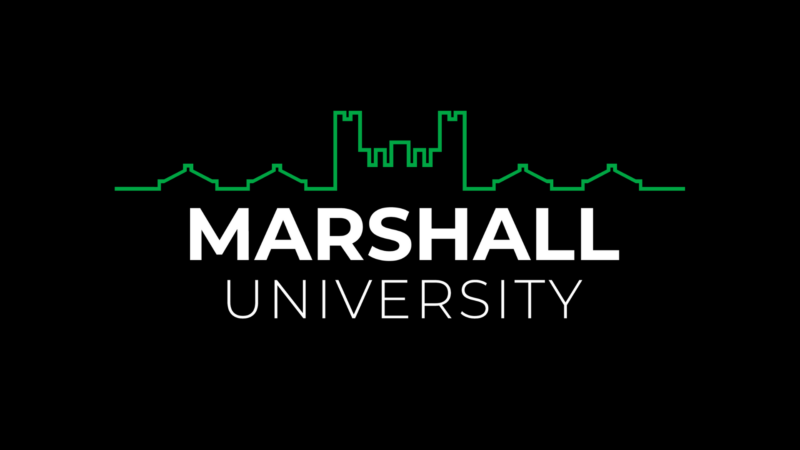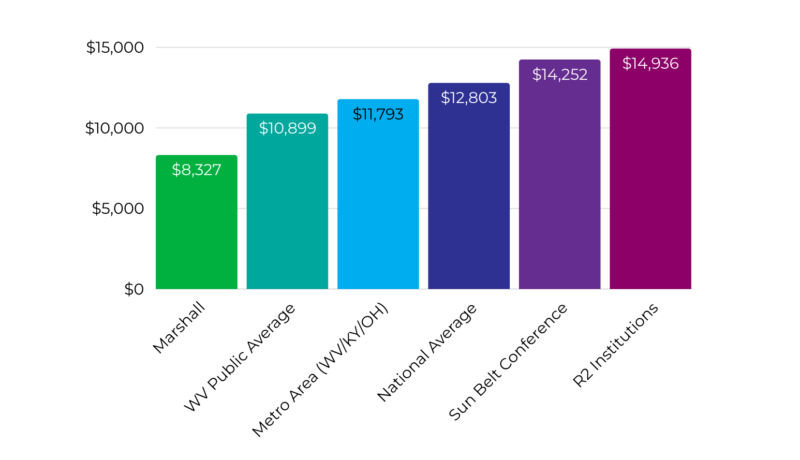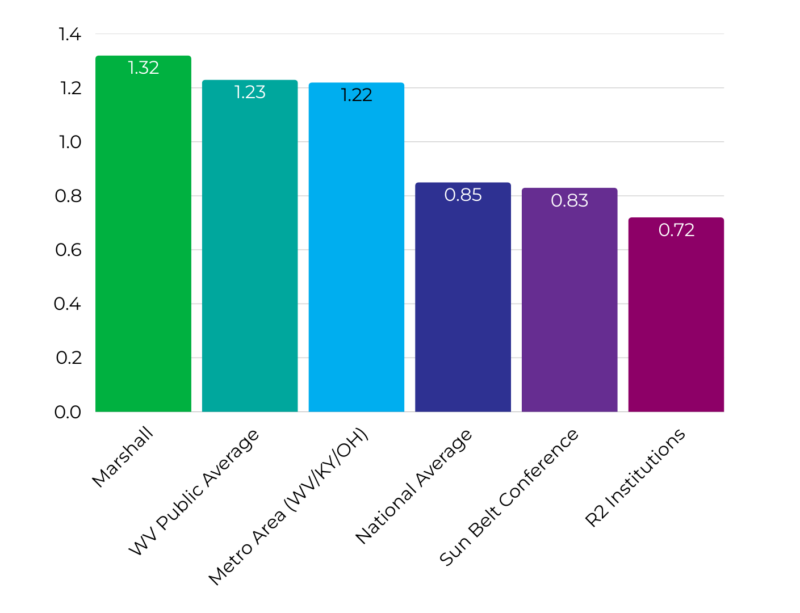
The Value of a Marshall Degree

A college degree should lead to opportunities – not overwhelming debt.
At Marshall University, students pay less on average each year than the state average.
Our graduates leave prepared, supported, and positioned for success – ready to make their degree worthwhile.

The Value of a Marshal Education
What is Earnings Ratio? For every $1 you spend on your Marshall degree, $1.32 comes back to you in future earnings.
Why Marshall?
Marshall offers one of the region’s most affordable education experiences, with low net tuition and metro rates for qualifying students in Ohio and Kentucky.
Through innovative programs like Tuition-Free WV and Marshall For All, students can pursue their degrees with reduced or no financial burden.
Our nationally-ranked Marshall Online programs allow you to complete your degree on your timeline, wherever you are.
Online learners enjoy reduced per-credit-hour rates, making it a cost-effective option for working adults or remote students.
On average, for every $1 spent on your degree, $1.32 goes back in your pocket in future earnings.
According to the Foundation for Research on Equal Opportunity in 2024, bachelor’s degree holders earn an average of $625,000 more in their lifetime than those with only a high school degree.
With strong alumni achievement and a focus on long-term career success, the value of your degree grows far beyond graduation day.
Our College of Education and Professional Development students see a 100% job placement rate upon graduation.

Average Annual Cost
At Marshall University, the average annual cost is lower than the state average, the metro area average, the national average, the average tuition in the Sun Belt Conference and the average cost of tuition among R2 research institutions.
The average annual net price that a student who receives federal financial aid pays to cover expenses (e.g., tuition, living expenses) to attend a school. Net price is the school’s cost of attendance minus any grants and scholarships received.
At Marshall, we believe your moment shouldn’t come with a lifetime of debt. That’s why our graduates pay less – and earn more.
A Marshall education doesn’t just get you ready.
It gets you ahead.

Extraordinary Value, Exceptional Returns
A college degree should open doors, not pile on debt.
Our graduates leave prepared, supported, and positioned for success, with an earnings ratio of 1.32.
That means our graduates earn more, faster.
For example, if a graduate’s starting salary is $50,000 and the net price of their degree was $80,000, the earnings ratio would be 0.625, meaning the graduate earns 62.5% of their total education cost in their first year.
A higher ratio suggests a faster return on investment, making it an important factor in evaluating the financial value of a college degree.


